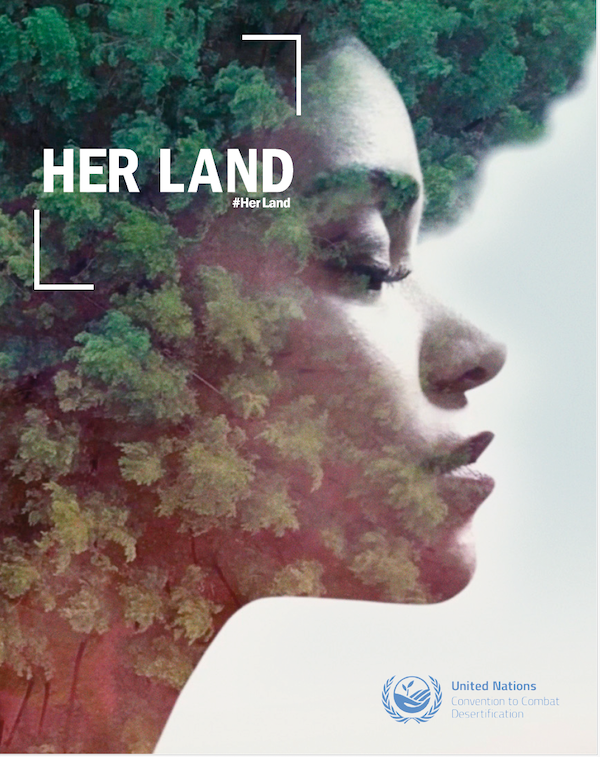Resource information
Land is being degraded rapidly worldwide. Our current agricultural practices are causing soils worldwide to be eroded up to 100 times faster than natural processes replenish them. At this critical moment, enabling the full contribution of women to halting land degradation and tackling drought is needed now more than ever.
Women comprise nearly half of the world’s agricultural workforce, producing 60–80 per cent of the food grown in developing countries1, so are poised to lead on sustainable land management practices while keeping their families and communities fed.
Despite their vital role, it is alarming to note that fewer than one in five landowners is female.2 Without land rights, women are not fully engaged in decisions on land use and management. However, studies show that when women own the land they work on, this encourages their dedication to land stewardship to fight land degradation and cope with climate shocks.
Desertification, land degradation and drought disproportionately impact women and girls, as they often do not have access to and control of land resources. They are most affected by reduced agricultural yields and increased water scarcity. Globally, women already spend
a collective 200 million hours every day collecting water. In some countries, a single trip to fetch water can take over an hour.
Gender equality remains unfinished business in every part of the world. In the vast majority of countries, women have unequal and limited access and control to land. In many regions, they remain subject to discriminatory laws and practices that impede their right to inherit, as well as their access to services and resources. Women’s rights to inherit their husband’s property continue to be denied in over 100 countries under customary, religious, or traditional laws and practices. In all parts of the world, women face significant barriers in securing land rights, limiting their ability to thrive and prosper.
When women are empowered, entire families and communities benefit. In addition to being on the frontlines of land degradation and climate change impacts, women can also be at the forefront of global efforts to restore land back to health and boost drought resilience. Gender-responsive land restoration is a pathway to reduce poverty, hunger, and malnutrition.
Securing women’s land rights can help advance global gender equality and many other Sustainable Development Goals (SDGs), that all countries and development partners have committed to. Investing in women’s equal access to land and associated assets is a direct investment in their future and the future of humanity.
Ibrahim Thiaw
UNCCD Executive Secretary


